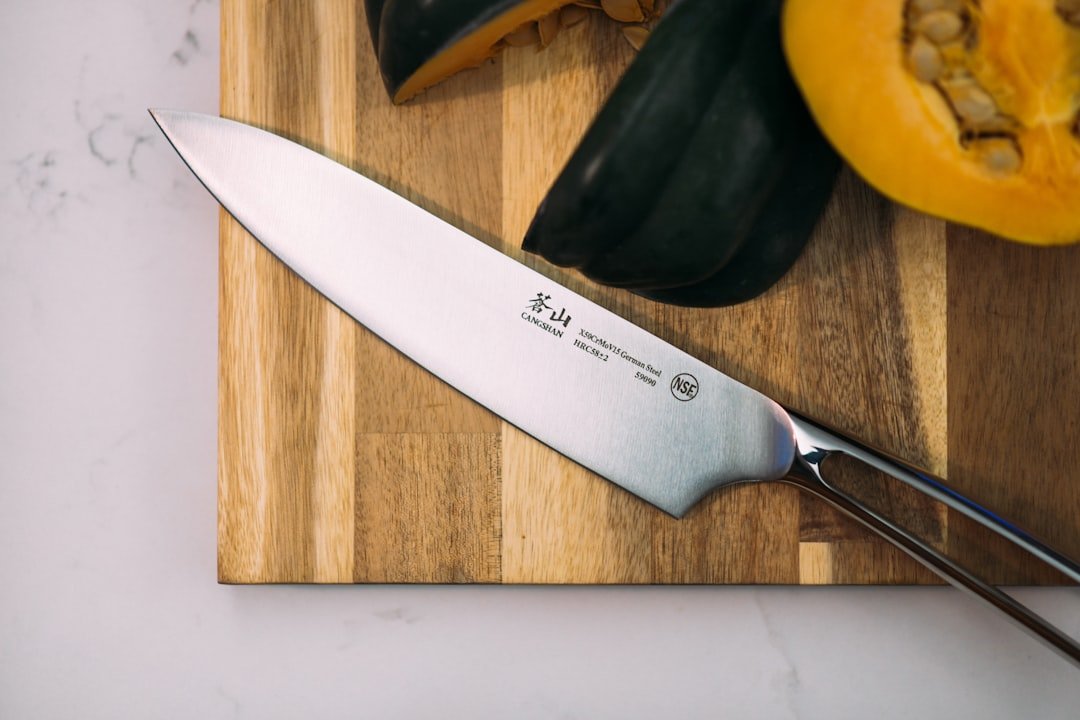
Artisanal blades, meticulously tailored to specific needs, often stand out as exceptional tools for culinary experts, featuring sharp, innovative edges and user-friendly grips. Among these, knives forged from Damascus steel rank highly due to their superior artistry and enduring appeal, making them a top choice for kitchen professionals worldwide.
Chefs and culinary experts favor these blades for their exceptional performance in tasks like dicing, mincing, and portioning ingredients with precision. Whether preparing thin slices of protein or uniform vegetable cuts, the refined edges deliver consistent results, enhancing efficiency in professional settings and everyday cooking alike.
The Appeal of Damascus Steel in Culinary Blades
Originating from ancient techniques developed by artisans in the Middle East, Damascus steel draws its name from the historic city where such methods flourished centuries ago. A defining trait is the distinctive layered pattern on the blade, which not only boosts visual allure but also signifies high-quality construction. Contemporary makers typically blend premium alloys of steel and iron, subjecting them to extreme temperatures followed by gradual cooling to achieve this effect.
Known for its remarkable resilience and longevity, Damascus steel has been utilized in blade-making for over two millennia, dating back to early sword craftsmanship. This material excels in producing top-tier kitchen knives, allowing for intricate designs while ensuring exceptional strength and edge retention. Its rise in the culinary world stems from these qualities, with many modern chefs praising its ability to maintain sharpness through rigorous use, as evidenced by its adoption in high-end restaurant kitchens globally.
Key Attributes That Set These Knives Apart
At this point, it’s clear how these knives elevate the cooking process, offering precision that simplifies complex preparations. Through years of refinement, their design has evolved to support chefs effectively. Premium Damascus blades often feature a full tang extending from handle to tip, providing robustness and showcasing elegant, flowing designs on the surface for added elegance.
Common materials in knife construction include the following options, each with distinct advantages:
- Carbon steel blades are widely chosen for their ease of sharpening and accurate cutting performance, ideal for detailed work. However, they require regular care to prevent wear and ensure long-term reliability, a trade-off many enthusiasts accept for superior results.
- Stainless steel options offer solid resistance to rust and are quite dependable, though they may not hold an edge as keenly as carbon steel. This makes them a practical pick for those prioritizing low maintenance without sacrificing basic durability.
- Ceramic knives provide excellent quality and resist staining better than metals, making them a durable alternative if handled with care. While more fragile than their steel counterparts, proper upkeep can extend their lifespan significantly, appealing to users seeking a low-maintenance edge.
The Art of Forging a Premier Damascus Culinary Knife
Creating an ideal Damascus knife demands expert skill and exacting attention to detail, typically involving seasoned craftsmen who oversee every step. The process includes heating the metal, shaping it through hammering, and allowing for controlled cooling, which produces the signature undulating patterns on the blade’s surface. Some standout qualities of these knives include the following:
Visually Captivating Design
The most striking element is the elaborate, eye-catching motif etched into the blade, born from the forging technique itself. This not only adds an artistic flair but also enriches the overall joy of cooking, turning a functional tool into a collector’s piece for any serious chef.
Exceptional Toughness and Resilience
Beyond aesthetics, the knife’s robust build and fortified structure make it a reliable performer. Its keenly honed edge facilitates effortless cuts, outperforming many alternatives and providing chefs with a noticeable edge in speed and accuracy, as supported by feedback from professional users in competitive culinary environments.
Simple Upkeep and Care
With routine attention, such as gentle washing and thorough drying to ward off oxidation, these knives remain in prime condition for years. Periodic honing keeps the blade sharp for precise tasks, making it a hassle-free investment that sustains its effectiveness over time.
In essence, Damascus knives have earned their status as a staple in professional kitchens due to their seamless blend of creative design, practical utility, and refined manufacturing. This combination not only meets but exceeds the demands of modern culinary arts, making them an indispensable asset for any dedicated cook.
